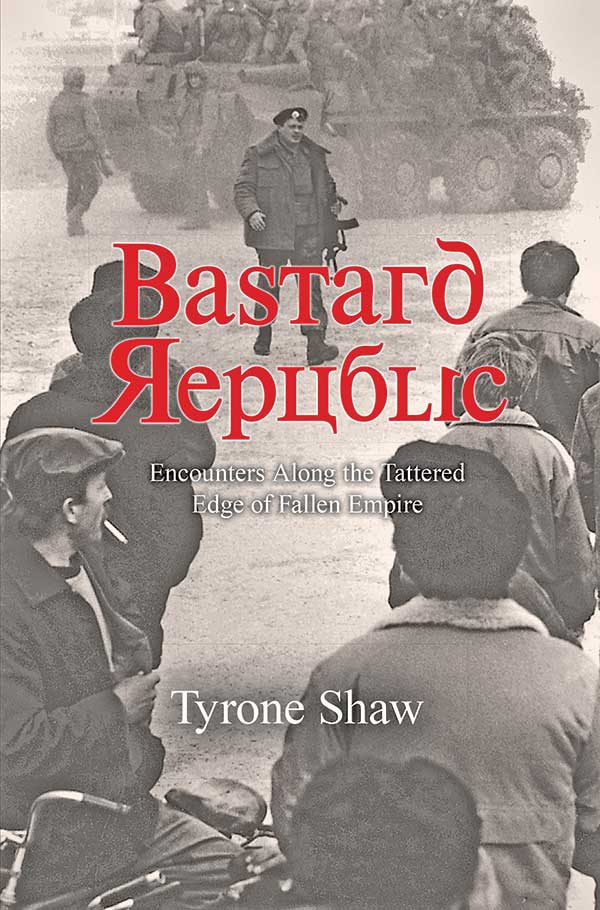“Bastard Republic” takes you to the edge of the former Soviet Union
I normally stay away from books of war — I’ve a weak stomach for violent death. As a result, I’m more of a “big picture” student when it comes to history. But when Professor Tyrone Shaw came into the library one night and mentioned his book, “Bastard Republic,” I decided right then and there to read it. I didn’t know what to expect. I didn’t know what kind of writer he was, where he’d been in the world, even what the book was about. Well, let me say this: he filled in a big hole regarding my education about the consequences of the breakup of the Soviet Empire. In clear, compelling prose, he drove into my consciousness the hard, true, and gripping tale of his experiences in Moldova, and this country’s history, culture, confusion, hopes, and hardship.
Shaw documents his visits to the Republic of Moldova, its breakaway region of Transnistria (controlled by Russia), and Romania from 1988 to 2015. You might wonder why Shaw is attracted to this area of the world. In his preface, he writes: “Curiosity is certainly part of it. As a journalist with a fascination for both history and sociology, the story of this part of the world is irresistible to me. I also like these places, where so much has been broken and so much remains to be fixed. I like their existential weirdness, their complexity, their hope, and their despair. More than anything, though, there is a desire to bear witness in some meaningful way to perhaps the biggest story of my time: the collapse of the USSR — the defining bogeyman of my youth.”
This is the thing about Moldova: Part of the USSR, it received its freedom in 1991 without any aid to continue the infrastructure and social programs the USSR provided. Neither Romania nor Ukraine filled the gap, and United States sanctions worsened the situation. As a result, it is now one of the poorest countries in Europe. Cultural conflict, political corruption, and lack of basic necessities continue to aggravate this nation as it moves to join the European Union.
In America, we often hear the phrase “politically unstable,” and for many of us, it has no real meaning because we have no context for it. Over the years, Shaw develops a network of friends and fellow journalists in Moldova, and in his visits with them, he walks the streets they do, shares their meals and customs, witnesses their persecution and hardship, and most important, hears their stories. Common sense and plain luck keep him safe; his penchant for risk taking keeps him current. Like a journalist embedded in a platoon, he experiences instability first-hand. And he keeps going back.
Though Shaw’s descriptions of his visits are mostly chronological, I sometimes got muddled as to which visit belonged to which decade. I suspect a second read would clear up this confusion. And though he mentions that he teaches ethics seminars in the region, these experiences remain undeveloped. Perhaps he’ll write more about this in a future book or article. I hope so.
Read “Bastard Republic.” It’s in our new book section here at the library. It’s not just a good read, it’s a very good lesson in history.






